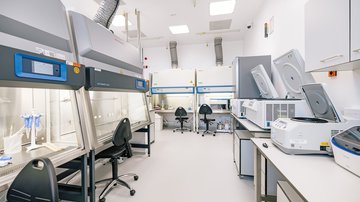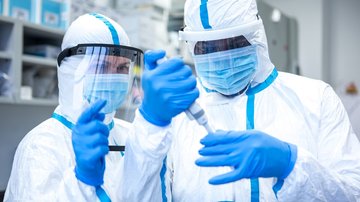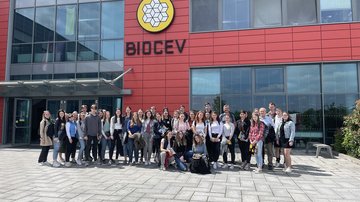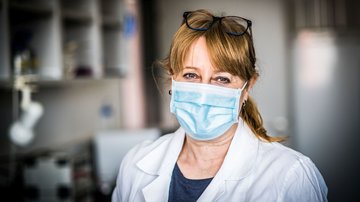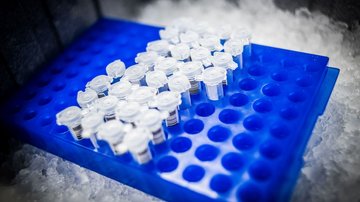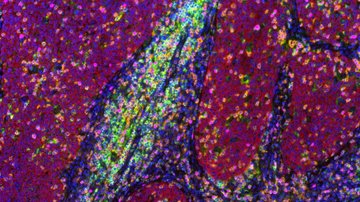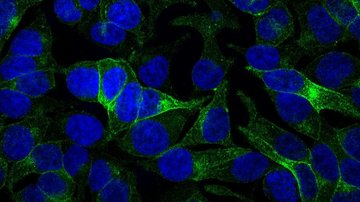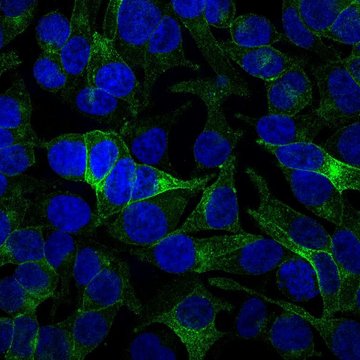
Identification of Targets for Diagnostics and Therapy of Tumour Diseases Associated with Human Viruses
BIOCEV research teams will participate in the Czech-US program INTER-EXCELLENCE
The program, supported by Ministry of Education, Youth and Sports of Czech Republic, enables extensive collaboration between the Czech teams and US counterparts in science and research.
New reagents targeting prostate cancer
Laboratory of Structural Biology from the Institute of Biotechnology CAS in BIOCEV received funding for a collaborative project with a top-leading team of prof. Pomper, Johns Hopkins Medicine (JHMI), Baltimore, USA. The project is focused on the development of new highly specific immunoglobulin molecules that can be used as diagnostic and theranostic tools targeting prostate cancer.
Prostate cancer is one of the leading cancer-related death causes in men population and the effective treatment is facilitated by early and accurate diagnosis that requires sensitive non-invasive imaging of tumor cells in vivo. Small molecules as well as macromolecules are currently being pursued for prostate cancer in vivo imaging. These reagents mainly target prostate specific membrane antigen (PSMA), a prostate-specific marker overexpressed on the cell surface of prostate cancer cells.
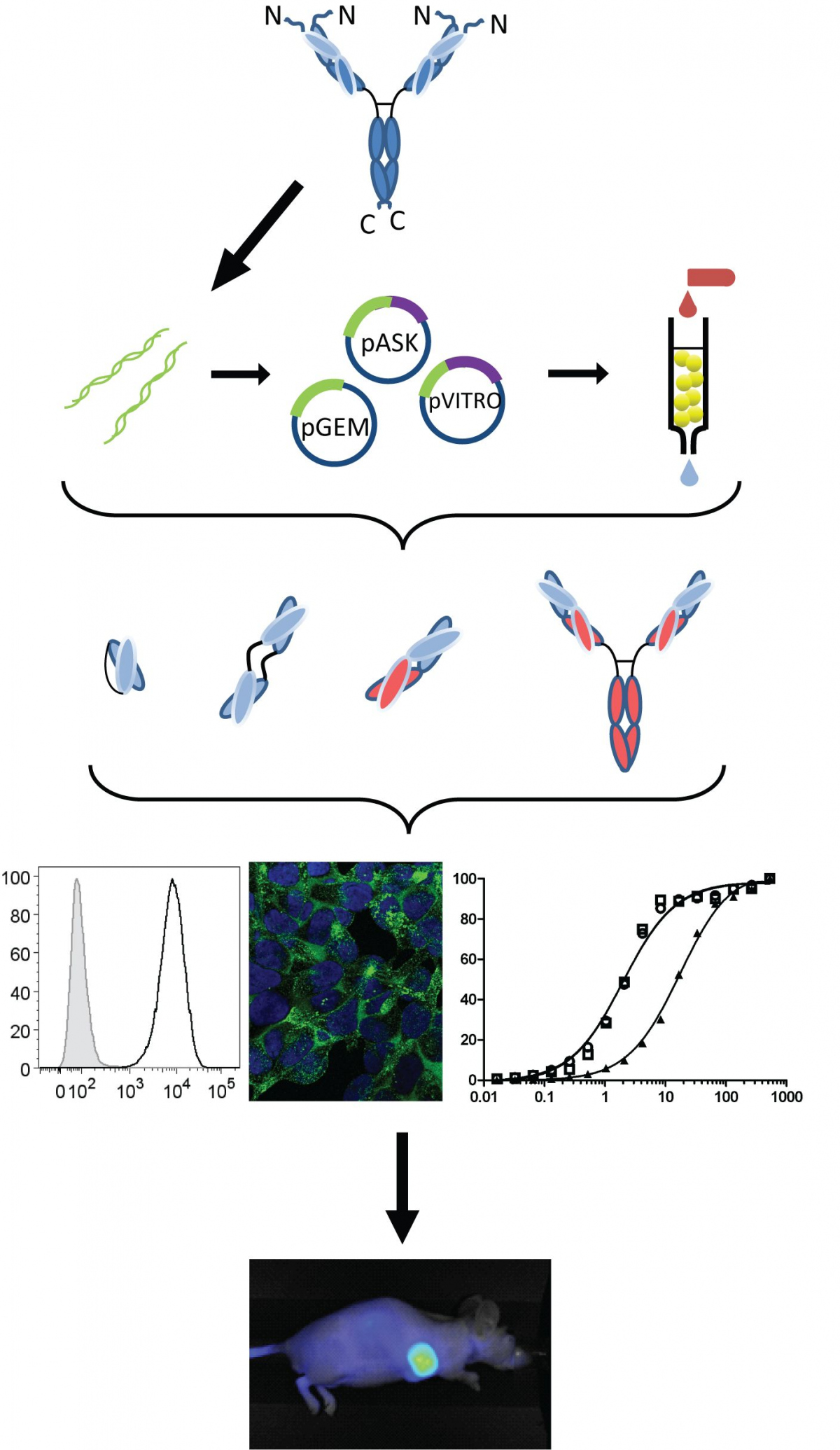
The award from the INTER-ACTION USA program enables extensive collaboration between the Czech team led by Dr. Novakova and its US counterpart at the JHMI. Using methods of protein engineering, the team of Dr. Novakova will develop new recombinant antibody-based molecules specifically targeting PSMA that will be then tested in an experimental setup of non-invasive in vivo imaging of prostate cancer by the collaborating laboratory of the Department of Radiology at the JHMI. “We believe that reagents developed within the project would increase sensitivity and accuracy of in vivo imaging of prostate tumors in human patients. We also plan to produce molecules that would be useful in prostate cancer treatment as target-specific reagents,” says Dr. Zora Novakova, the principal investigator of the project.
Cell aging - one of the most important questions in current biology
Supported project focuses on research into the molecular mechanisms of cell adaptation connected with cell aging. Regulatory proteins mediating cellular response to extracellular signals are among the most evolutionary conserved proteins in eukaryotes. Understanding of their function in relatively simple yeast model thus could contribute to identification of new regulations in metazoa.

The international collaboration project was awarded to Prof. Z. Palková (Charles University, Faculty of Science, BIOCEV) and Dr. L. Váchová (Institute of Microbiology, CAS, BIOCEV) together with the collaborating team of Prof. T. G. Cooper from the University of Tennessee, USA. The project focuses on research of central regulatory mechanisms connecting signals from the environment with cell metabolic reprogramming and ageing. Regulatory proteins mediating such signalling are among the most evolutionary conserved proteins in eukaryotic organisms. Understanding of their function in relatively simple yeast model thus could contribute to identification of new regulations in metazoa.
The TORC1 complex is one of the most important central regulators conserved from yeast to mammalian cells, which controls the cell metabolic reprogramming in response to environmental conditions. The understanding of metabolic regulations related to cell ageing and differentiation in response to various environmental conditions thus offers the prospect of identifying new targets for treatment of several diseases, including cancer.
Small inhibitory molecules in the treatment of virally induced malignancies
The project called "The role of aspartyl beta-hydroxylase in tumors associated and non-associated with human papillomaviruses " addresses the usability of small inhibitory molecules in the treatment of tumour diseases caused by human papillomaviruses. A number of small inhibitory molecules have already been authorised for the treatment of diverse malignancies, and other promising inhibitors have been under development to be used in patient tailored combination therapy of cancer.
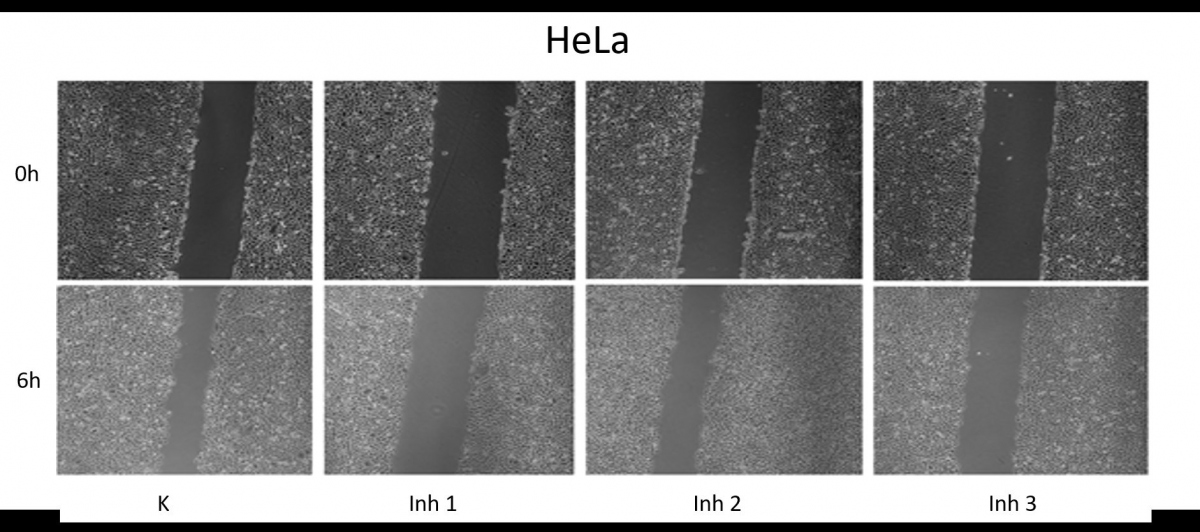
The principal investigators of this international grant project are Dr Ruth Tachezy, PhD and Dr Michal Šmahel, PhD (Faculty of Science, Charles University, BIOCEV) in cooperation with the partner laboratory of Prof. M. Olsen from the Midwestern University in Glendale, USA. Both teams will focus on research into inhibitors targeting the enzyme aspartyl-beta-hydroxylase, a transmembrane protein which modifies proteins controlling cell motility and adhesion. Its enhanced expression, as reported in a number of solid tumours, can be involved in the migratory and invasive potential of cancer cells.
The effect of the inhibitors to be prepared by the US collaborating laboratory will be tested by both teams on cell lines originating from oropharyngeal tumours, which are increasingly associated with human papillomavirus infection. Their study will be interlinked with the project Center for Tumor Ecology – Research of the Cancer Microenvironment Supporting Cancer Growth and Spread, a joint project of the First Faculty of Medicine and Faculty of Science, Charles University supported from the operational programme Research, Development, and Education within the call Excellent Research since 2018. This project will address the effect of aspartyl-beta-hydroxylase inhibitors in a mouse tumour model, including the modification of antitumour immune reactions.

